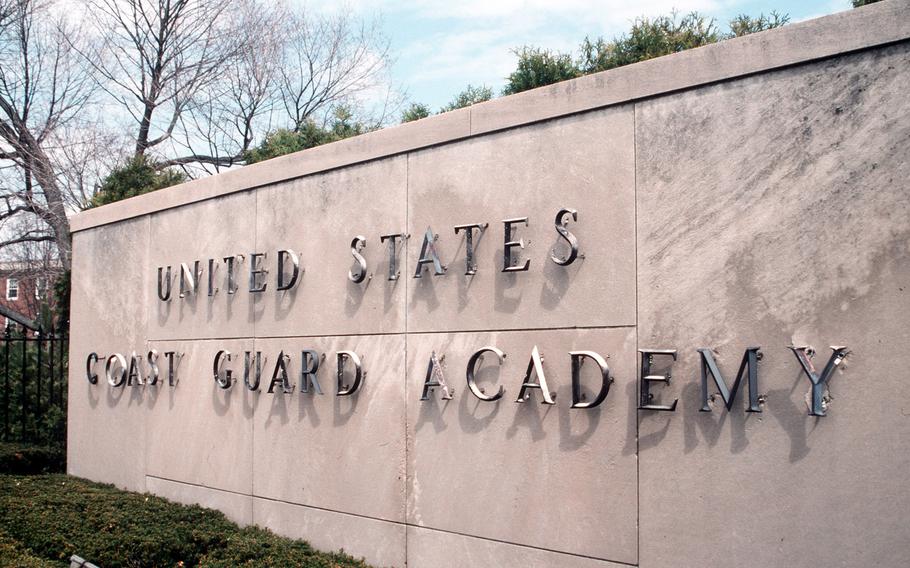
U.S. Coast Guard Academy in New London, Conn. (David M. Santos/U.S. Coast Guard)
WASHINGTON — A yearslong cover-up of sexual assault at the Coast Guard Academy is prompting lawmakers to align the Coast Guard with other military services in protecting cadets and service members who report sexual abuse.
A proposed Senate bill would establish safeguards for victims in the Coast Guard and its academy and codify into law a new Coast Guard policy that ensures survivors are not punished for minor infractions, such as underage drinking or curfew violations.
Congress in 2021 required all military services to implement a so-called “safe-to-report” policy but the Coast Guard, a branch that operates under the Department of Homeland Security and can transfer to the Navy in times of war, was omitted from the legislation.
“Survivors are now understandably afraid they’ll be punished when reporting cases of sexual misconduct,” said Sen. Richard Blumenthal, D-Conn., a co-sponsor of the new bill. “This legislation holds the Coast Guard Academy accountable by enshrining safe-to-report policies and ensuring proper protections.”
Companion legislation was introduced in August in the House by Rep. Joe Courtney, D-Conn.
He said the bill affords cadets the same protections as other members of the military when reporting sexual assault and harassment.
“This is one step in the process to care for our cadets,” Courtney said.
Lawmakers have searched for ways to reform the Coast Guard after CNN revealed last year that the service concealed the results of an investigation into 102 cases of rape or sexual assault at the Coast Guard Academy from 1988 to 2006.
The six-year internal review, dubbed “Operation Fouled Anchor,” identified 43 alleged perpetrators and 63 victims and found the Coast Guard routinely dismissed serious sexual misconduct. Many alleged victims left the academy after reporting their assaults.
Sen. Chris Murphy, D-Conn., said it was “devastating” to think of how many more incidents went unreported due to fear of reprisals.
“Cadets and midshipmen at every other military academy are protected by a ‘safe-to-report’ policy, and those at the Coast Guard Academy deserve those same protections,” he said. “While Coast Guard leadership is finally taking steps to improve oversight, training and support for survivors, this bipartisan legislation is necessary to protect cadets and ensure accountability.”
The Coast Guard earlier this month announced a new policy requiring commanders to disregard minor offenses by victims or witnesses in sexual assault cases in hopes of encouraging reporting of such incidents. The misconduct can include breaching of school standards or policies for barracks and berthing.
Sen. Marsha Blackburn, R-Tenn., said the enshrining of a safe-to-report policy into law is one immediate action lawmakers can take in response to Operation Fouled Anchor and the suppression of its existence. Congress and the public learned of the report three years after it was completed.
The Senate Committee on Homeland Security and Governmental Affairs’ subpanel on investigations is examining the coverup. Documents recently provided to the subpanel showed Coast Guard officials worried releasing the report would “risk the initiation of comprehensive congressional investigations, hearings and media interest.”